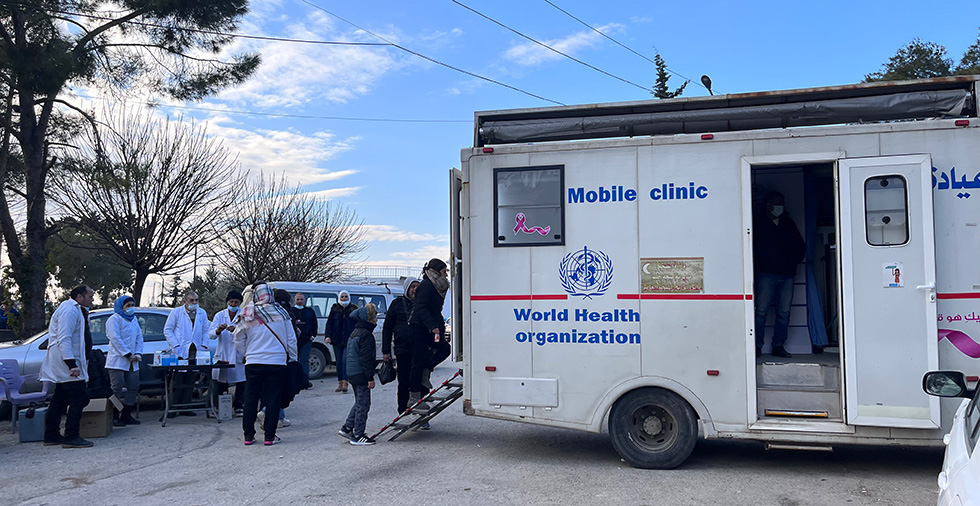
6 February 2024, Damascus, Syria – It is one year today since a devastating series of earthquakes struck Syria and Türkiye, causing more than 1400 deaths and injuring about 2357 people in Syria alone. Hundreds of thousands more were displaced. Today, WHO reflects on its work to help the people of Syria recover from the disaster and to support the reconstruction of affected areas.
Over the past year, WHO has supported nearly 69 000 outpatient consultations and over 9000 trauma consultations in Syria. More than 550 000 people in hard-to-reach areas have received essential health services through 28 mobile medical teams supported by WHO, and over 197 000 children have been vaccinated. WHO has also supported mental health services for over 922 000 traumatized survivors of the disaster.
These efforts have been critical in meeting immediate health needs and also preventing long-term disabilities and health conditions among the affected population.
WHO continues to provide critical medical equipment to support the Syrian health system in the earthquake-affected areas. Donated equipment includes computed tomography (CT) scanners, a magnetic resonance imaging (MRI) machine, X-ray machines, ultrasonic devices, ambulances, patient beds, ventilators, oxygen generators and patient monitors.
WHO has also provided enough components for 325 prosthetic devices to be made at the Rehabilitation and Artificial Limbs Centre in Damascus. WHO continues to work with communities to engage and inform them about how to reduce their health risks and better protect themselves in the aftermath of natural disasters.
Dr Iman Shankiti, acting WHO Representative in Syria, said: “As we reflect on the past year, the remarkable resilience of Syrian communities and health workers serves to inspire us in our own work. Their strength in the face of adversity drives our commitment to rebuild Syria’s health infrastructure, to ensure a healthier, more resilient future.”
WHO’s commitment to the people of Syria is unwavering. Thanks to the generous contributions of its donors, WHO will continue its work to support health system rehabilitation and enhance the health and well-being of those affected by this traumatic event.


